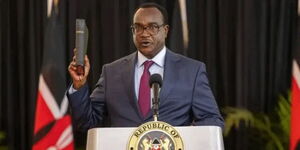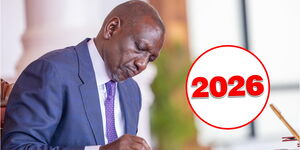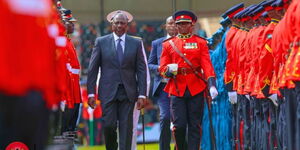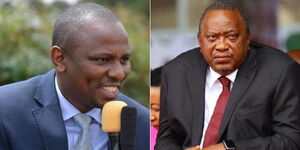On April 14, 2023, the Azimio La Umoja coalition wrote a letter to the International Criminal Court (ICC) demanding an inquiry into the political situation in Kenya.
The opposition led by Raila Odinga raised nine grievances including the raid on Northlands Farm in Ruiru, physical injuries on Azimio supporters, and the attempted assassination of Azimio la Umoja leader Raila Odinga.
Kenyans.co.ke, however, sought to find out the threshold cases need to attain to capture the attention of the international court.
The Hague-based court investigates and, where warranted, tries individuals charged with the gravest crimes of concern to the international community.
Article 5 of the Rome Statute limits the court’s jurisdiction to only four crimes including genocide, crimes against humanity, war crimes, and the crime of aggression.
Genocide is defined as the specific intent to destroy in whole or in part a national, ethnic, racial, or religious group. It includes inflicting hardship on a group of people to bring about their destruction. It also includes causing serious bodily or mental harm to members of the group.
Crimes against humanity are defined as large-scale attacks against civilians. Offenses include enforced disappearances, enslavement, rape, and murder.
War crimes are defined as grave breaches of the Geneva Conventions in the context of armed conflict. This includes the use of child marriages, torture of civilians or prisoners of war, and attacks against hospitals and buildings dedicated to religion, education, art, science, or charitable purposes.
Lastly, the crime of aggression is the use of armed force by a state against the sovereignty, integrity or independence of another State. On July 17, 2018, the Assembly of States Parties adopted by consensus a resolution on the activation of the jurisdiction of the court over crimes of aggression. The definition of the crime of aggression was first adopted in Uganda at the 2010 Kampala Review Conference.
Criteria Considered
Before making a decision on taking up a case, the Office of the Prosecutor looks at three criteria.
Firstly, there must be sufficient evidence of crimes and those crimes must have sufficient ‘gravity’ in order to be within ICC’s jurisdiction.
According to Article 53 (1) (b), the prosecutor shall consider, among other things, the admissibility of possible cases including an assessment of the sufficiency of gravity.
All four crimes are underpinned by the ‘principle of gravity’. This means the matter should be weighty and of grave concern to the international community.
Secondly, the prosecutor confirms if there are genuine national proceedings.
Thirdly, the prosecutor should confirm whether opening an investigation would serve the interests of justice and of the victims.
The ICC became a national topic in the wake of the post-election violence after the 2007 General Elections. After failed attempts to try the perpetrators locally, the matter was forwarded to the ICC.
On December 15, 2010, prosecutor Luis Moreno Ocampo named six suspects, also known as Ocampo Six, over the 2007-2008 post-election violence. Uhuru Kenyatta, William Ruto, Henry Kosgey, Mohammed Ali, Francis Muthaura, and Joshua Sang’.
However, by 2016 all cases against the accused had been dropped due to lack of evidence.












